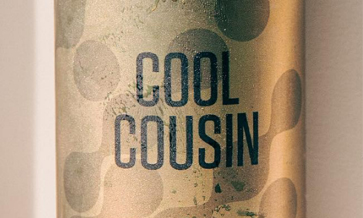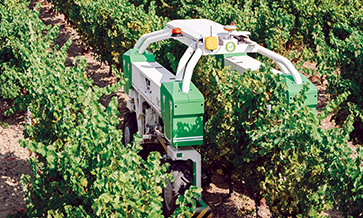Of-age consumers worldwide want more adventurous, fresh-tasting and naturally-flavoured alcoholic beverage options: from grapefruit-flavoured beer to pineapple-flavoured vodka, people are thirsty to try new and exciting drinks, including juice infusions in alcohol.
Between 2012 and 2017, flavoured beer launches grew by 32% in North America and “juice” is now listed as an ingredient on 45% of all stateside alcoholic beverage menus.
But crafting made-to-order cocktails is one thing and producing a juice-infused packaged drink products is quite another. When it comes to adding fruit to beer and alcoholic beverages, consumer demand can at times outpace brand capabilities.
Here’s an in-depth look at the trend of adding fruit to beer and alcohol, including a primer on consumer preferences and a summary of operational challenges and solutions for brands that want to make juice-infused drinks.
Health halo
Juice-infused alcohol isn’t just trending because of flavour – there is also a perceived health benefit in drinks that contain juice. In the beverage category, products that claim to be “made with real juice” are rapidly growing, according to recent Nielsen data.
Twice as many alcoholic beverages with juice were launched in 2017 than in 2013, according to Mintel market research firm.
“I find that the appeal of fruit-juice infusions is coming from the demand for natural sugars and from an interest in finding an alternative to artificially flavoured spirits,” says Joey Torkelson, Beverage Mixologist and Applications Manager at Kerry (North America).
Juices and juice infusions and extracts add the ‘health-halo’ to alcoholic beverages, taking guilt out of the equation, he feels.
Handling the aseptic juices often used in such beers can cause operational difficulties, including problems around storage, thawing, refrigerating, pumping and maintaining flavour, all while increasing contamination risk.
Due to these logistical problems, many manufacturers are looking for natural flavour alternatives that are easier to work with than traditional refrigerated juices.
Novel experience
According to GlobalData, 60% of alcohol consumers around the globe find trying new experiences – such as sipping on new and novel drinks – to be exciting. A sense of adventure and exploration is driving consumers of all ages, especially Millennials.
On-trend exotic and citrus flavours can elevate flavour fusions in beer, wine and spirits. Kerry’s recent Taste Charts 2022 identifies the most popular emerging, up and coming, key and mainstream tastes and flavours, including in the alcoholic beverage category.
While adding whole fruit juice is an option for many alcohol products, it doesn’t work in every application. And, new innovations are making obsolete the need to ship, purchase, store and use fresh juice before its expiration date.
What’s more, many of these juice-based products can be added to beverages that are labelled with “no artificial colours”, “made with real juice” and “organic”.
Flavourists work with ingredients, including lime, strawberry, acai and tangerine, to create flavours that can be applied across alcoholic beverages and are easy to use and store.
Fruit crystals provide a similarly authentic juice taste, but in powder form. Kerry’s Crystals are made from juice through a patented, low-heat continuous-vacuum process that maintains the colour, flavour, acidity and nutritional properties of the original juice. Such products are compact and easy to store, yet rehydrate instantly with no clumping.














